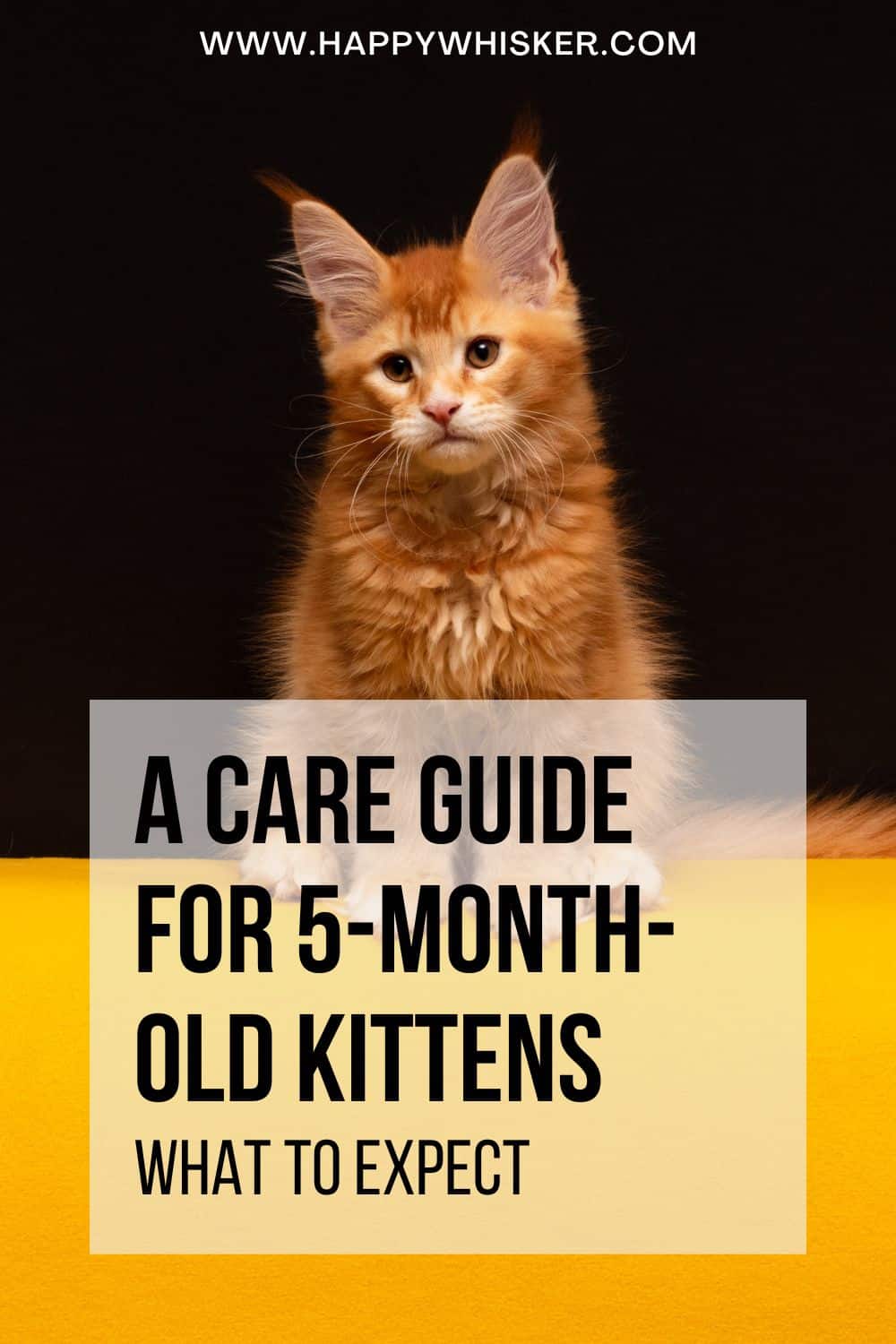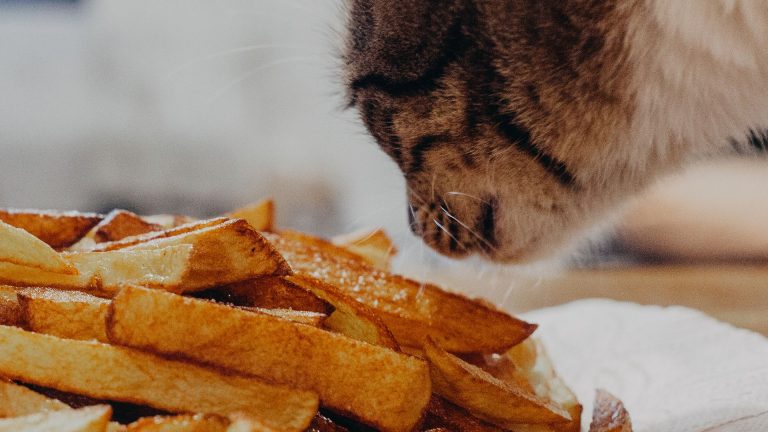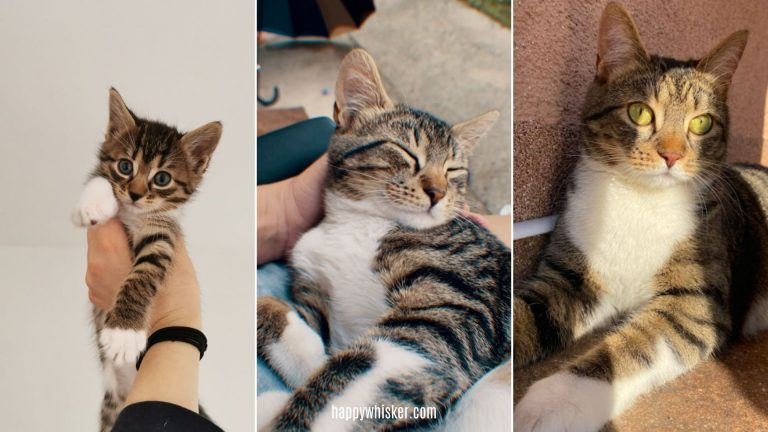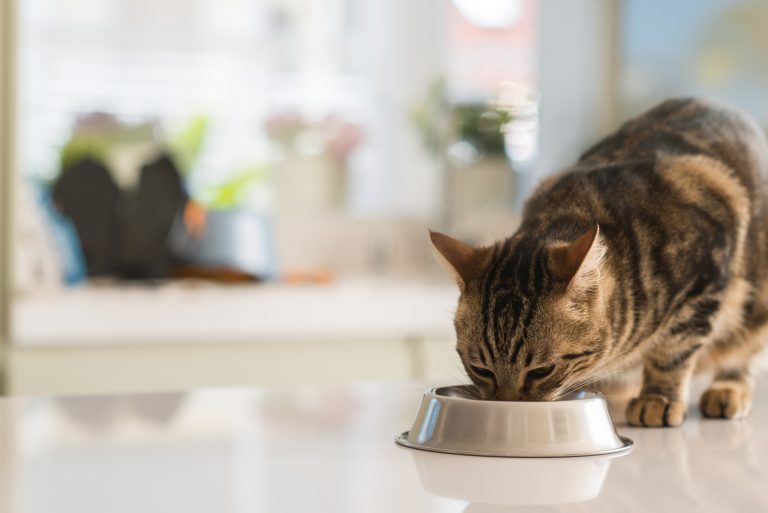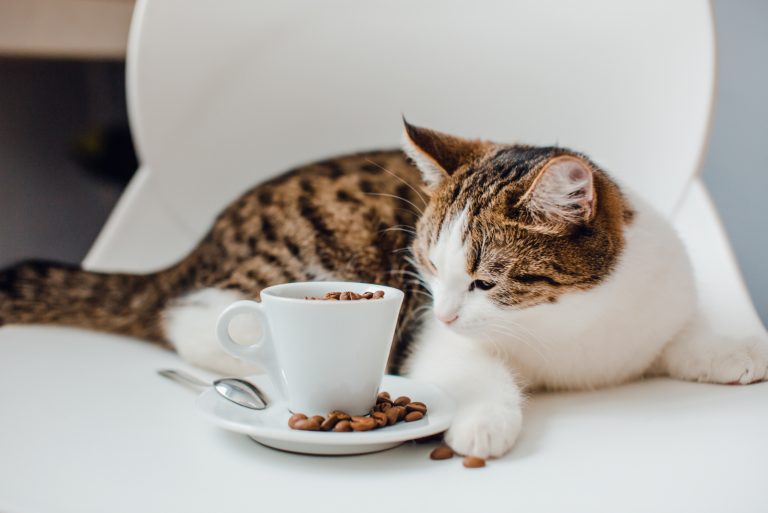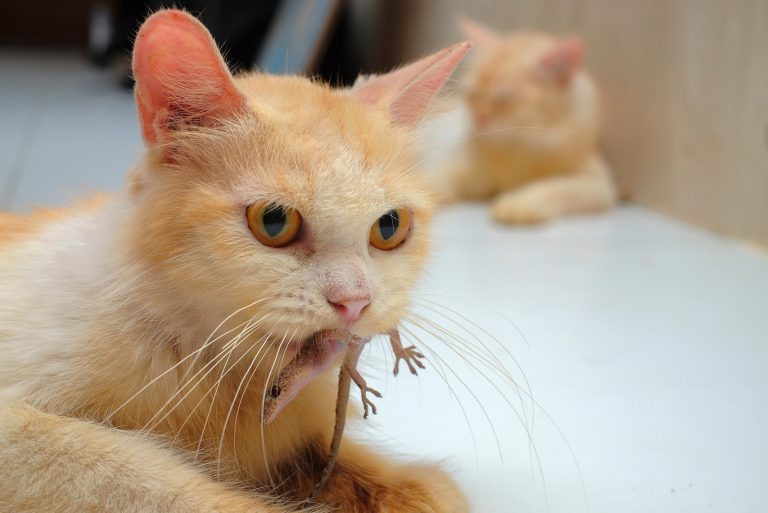A Care Guide For 5-Month-Old Kittens – What To Expect
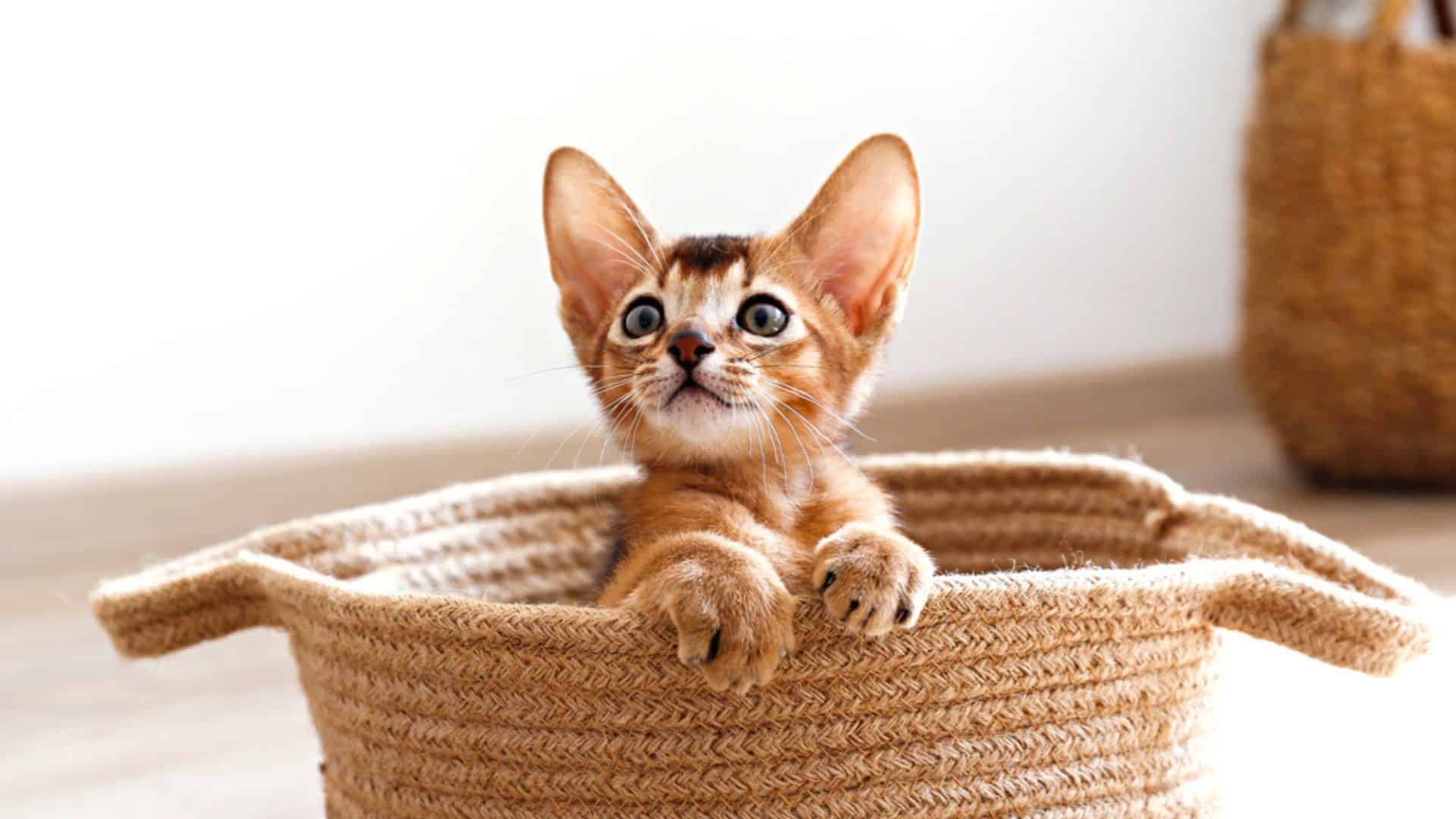
When it comes to owning a cat, people tend to have a lot of questions. All of us have different concerns, especially when it comes to getting a new pet, and it’s natural to be curious about what to expect!
For starters, 5-month-old kittens typically weigh 5 to 6 pounds but keep in mind that some cat breeds are larger or smaller than others, so this is not an exact rule.
If you know anything about certain cat breeds, you immediately know that a Maine Coon kitten will be much bigger than a Munchkin, for example. Let’s see what else you can expect when you adopt a 5-month-old kitten (other than cuteness overload).
A Care Guide For 5-Month-Old Kittens
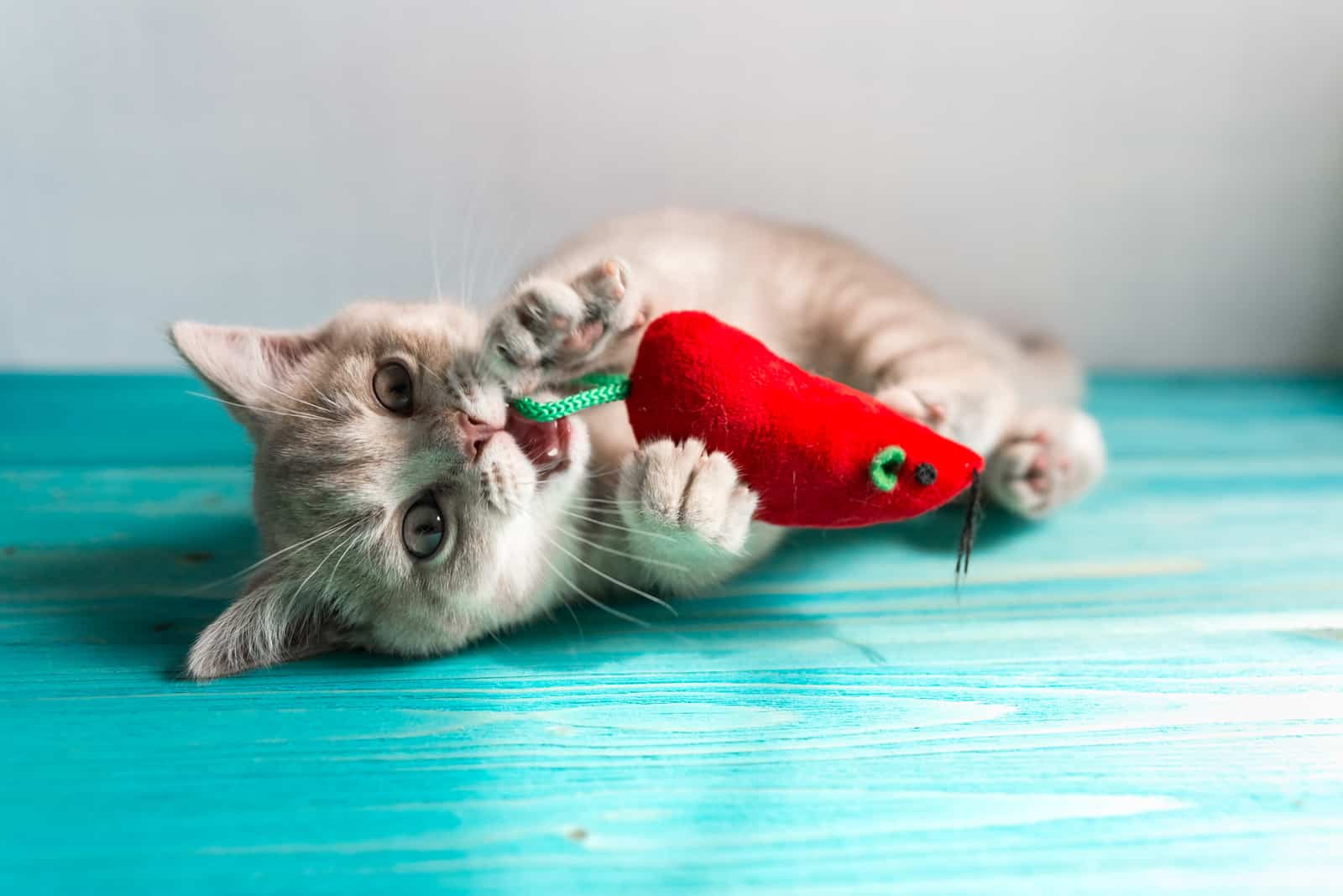
Before we go into detail about your 5-month-old kitten behavior, its health, and all the rest, let’s have a look at a kitten growth chart from 3-month-old kittens to adult cats.
| Kitten’s Age | Average Weight |
| 3 months | About 3 lbs |
| 4 months | About 4 lbs |
| 5 months | About 5-6 lbs |
| 6 months (to adulthood) | About 7-9 lbs |
Some adult cats can weigh a lot more than nine pounds, but the average adult weight of most cat breeds is approximately nine pounds.
For more info on kitten care and sizes in different life stages, see this article: 4-Month-Old Kittens Size And Growth Changes – Kitten To Adult.
Size
For many pet parents, normal kitten development is a big concern. The appropriate weight for a 5-month-old kitten, as I already mentioned, depends mainly on the breed.
A Norwegian Forest kitten or a Maine Coon kitten at this age might weigh around 6-7 lbs, while a Cornish Rex will probably weigh only 3-4 lbs.
For some domestic kittens of unknown parentage, a good rule of thumb is that a 5-month-old kitten will weigh just over half of its final adult weight.
If you’re concerned that your kitten isn’t growing as well as you’d like, it’s a good idea to see your vet. Several common cat diseases, including parasitic infections, can interfere with weight gain in kittens.
Don’t worry if your kitten is a little bigger or smaller than you expected, as long as it is otherwise healthy.
See also: When Do Kittens Start Walking? A Must-Know Kitten-Care Fact
Nutrition
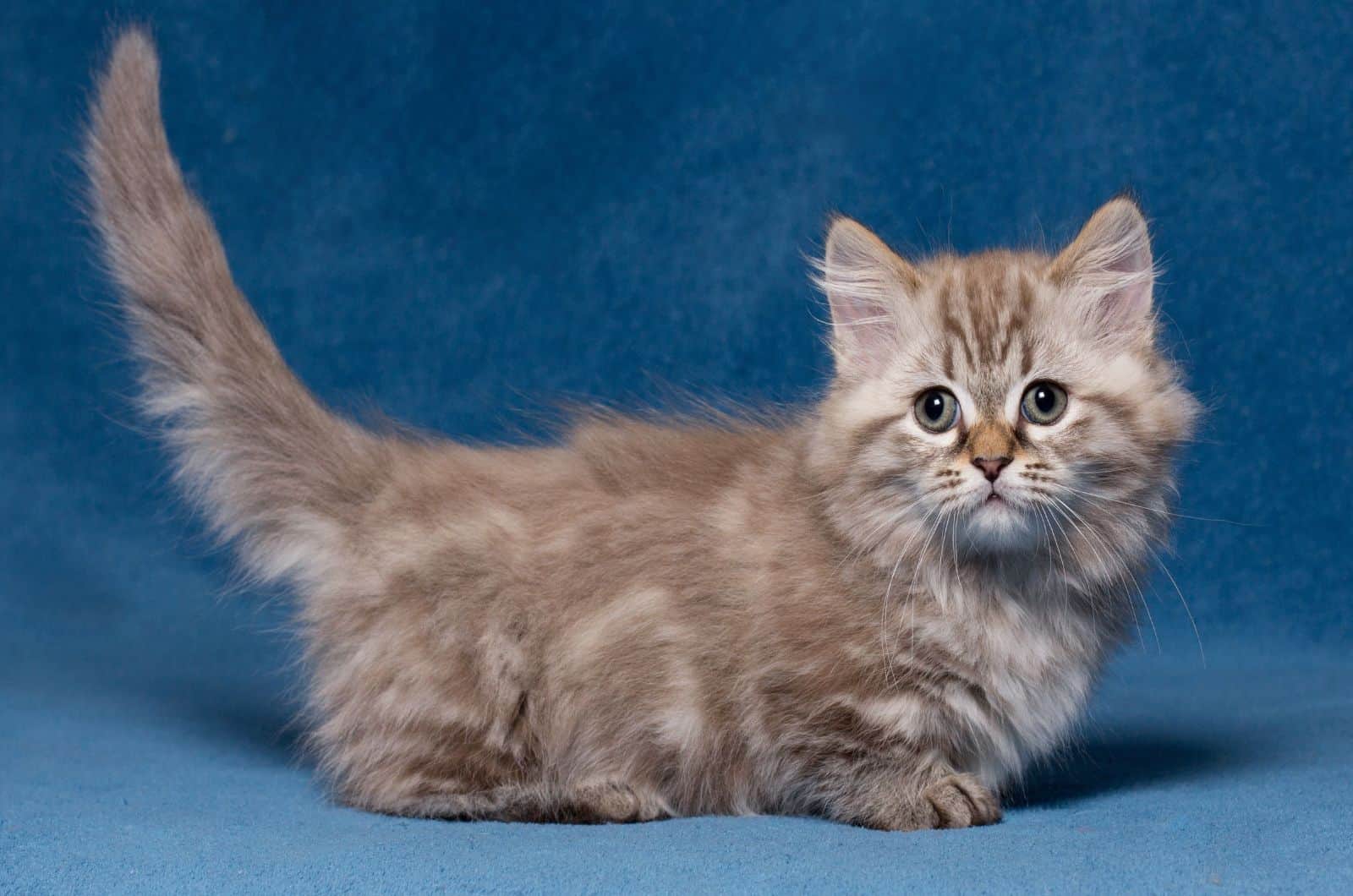
Taking good care of your kitten is important. Good care doesn’t just mean you have to pet them and play with them every day. This means you need to pay attention to what your kitten is eating and whether there are any changes in its behavior or growth.
How Much Should A 5-Week-Old Kitten Eat?
Like a human infant, a 5-month-old cat continues to grow rapidly, so it’s important to focus on providing the right amount of food to support its growth. As your cat grows, it may feel like it’s always hungry but isn’t gaining any weight.
Your kitty may feel like trying different types of food, including the food on your plate, but this is not recommended. It’s best to keep giving them the right amount of kitten food, according to the vet’s instructions.
As for treats, you should limit these to just under 10% of the cat’s daily caloric intake. That is a well-known rule. When it comes to nutrition, you can’t go wrong with regular kitten food.
There are also some great kitten formulas on the market. Make sure the food is rich in protein and vitamins and that it’s easy to chew.
You can also expect that by the time your kitten is 5 months old, it will be more and more hungry and craving food more frequently. You can feed them several times a day, but be careful not to overfeed them.
Check out: How Long Can Kittens Go Without Food?
Can Kittens Eat Cat Food?
Kittens require adequate nutrition to develop properly. Many of these nutrients are found in foods designed to support kitten growth. This is why we have specific cat food and also kitten food.
Kitten food is specially formulated with a variety of nutrients to help your kitten grow into a healthy cat, but cat food may be deficient in these nutrients that help your kitten grow and develop.
It’s best to continue feeding kitten food until your kitten reaches full adult weight and is about 12 months old.
So, even if your kitten looks and acts like an older cat, stick to kitten food to make sure it’s getting the vitamins, minerals, and calories it needs to grow.
Health
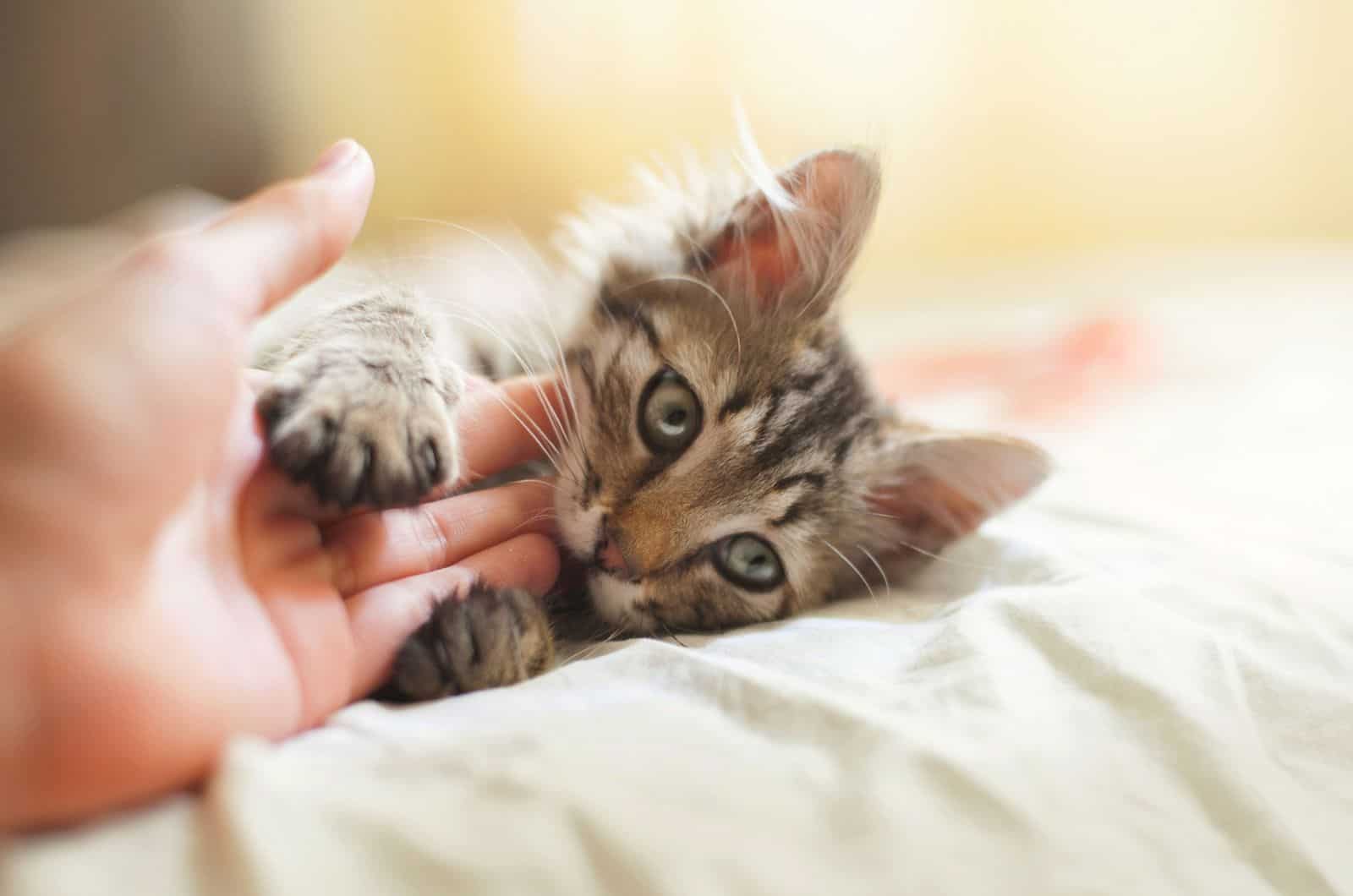
Be prepared to visit your veterinarian more often. Spaying or neutering options should be discussed during your veterinary visit if you don’t want a new kitten. This procedure is often recommended for owners who don’t want more kittens on their hands.
Spaying or neutering also generally improves a cat’s health, preventing a variety of illnesses that can affect them later in life.
Benefits of spaying:
• Lowers the risk of mammary, ovarian, and uterine cancers
Benefits of neutering:
• Lowers the risk of testicular cancer
• Minimizes spraying
How To Handle Teething
Kittens lose their baby teeth and grow adult teeth at 4-6 months of age. At this time, you might notice the fallen teeth around their beds or on the floor, but it’s unlikely.
Other signs of teething include your kitten pawing at its face, appetite loss, or weak bleeding gums. Your kitten might also be chewier, nibbling on toys and things. It would be a good idea to provide your kitten with chew toys, so they don’t nibble on your belongings.
Behavior
In terms of emotional maturity and behavior, 5-month-old kittens have come a long way. By this time, you can have almost a clear vision of what your kitten’s adult temperament is going to be like.
Studies on kitten development show that many aspects of a kitten’s personality are now developed and will remain roughly the same for the rest of its life. For example, how social they are, how brave they are, and how interested they are in exploring.
Others continue to evolve. For example, territorial behavior in males begins when they reach puberty, in the next month or so. Cat predatory skills also do not develop consistently.
So your 5-month-old kitty may be good at searching for fluffy kitty toys, or it may still look confused. Those who look confused now will usually make up for it in the months to come.
See also: When Do Kittens Start Pooping & Useful Tips
Behavioral Changes To Expect
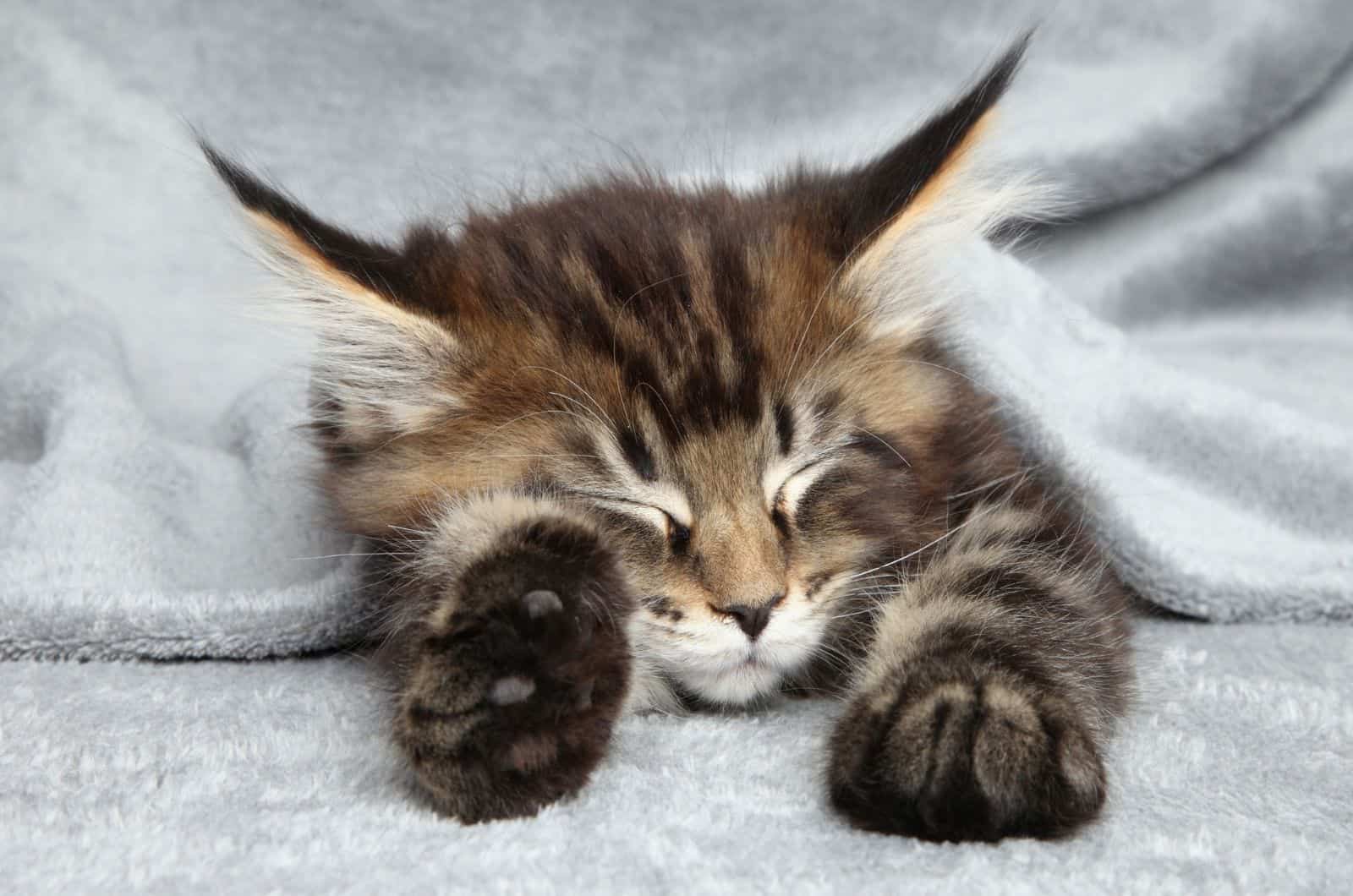
A five-month-old kitten is still young, but it’s worth noting that puberty is just around the corner. This means that your furry friend will soon get a high dose of teenage hormones, causing major changes in several aspects, including their daily behavior.
It causes trouble for everyone in the house. While it’s difficult to avoid problems entirely, having an overview of a 5-month-old kitten’s behavior can help minimize potential harm.
Kitten’s Activity Increases
In general, the hormonal surge in the body keeps the average cat active for most of the time when they’re around 5 months old. Pets also eat a lot to support rapid body growth, so they need to do something to release their stored energy.
To do this, many cats hang around humans and play, while other cats resort to claw-pulling, often leaving unsightly marks everywhere. This is why scratching posts are a good idea at any age.
Kittens Become More Aggressive
As territorial predators, cats become aggressive when they sense someone intruding on their territory. For this reason, the most noticeable behavioral problem in 5-month-old kittens that most pet owners perceive is increased aggression.
Plus, cats use urine to mark their territory, so expect your fluffy friends to fill the atmosphere with pungent odors.
You might also want to check out: Single Kitten Syndrome – Why Two Kittens Are Better Than One
Sexual Maturity Begins
Overall, cats should be able to mate by the time they are 5 months old, which is a major headache for cat parents. Male cats will try to run outdoors to find potential mates, spray urine, and fight other suitors.
Cats find mates easily, so there is also the possibility of an unexpected pregnancy, but blocking all paths can lead to your cat vocalizing all night long. For people living in apartments, such behavior leads to many problems.
Your kitten will begin puberty at 5 months old, which means their natural instincts to mate will be extremely strong. When your kitten is in heat, you will start noticing visible changes in behavior.
They will desperately be looking for a mate, which means they may try to flee the house, particularly if they are the only cat in your household.
If you have another cat who is not fixed, you may have to keep them apart for a while if you don’t want unwanted pregnancies.
When Will My Kitten Calm Down?
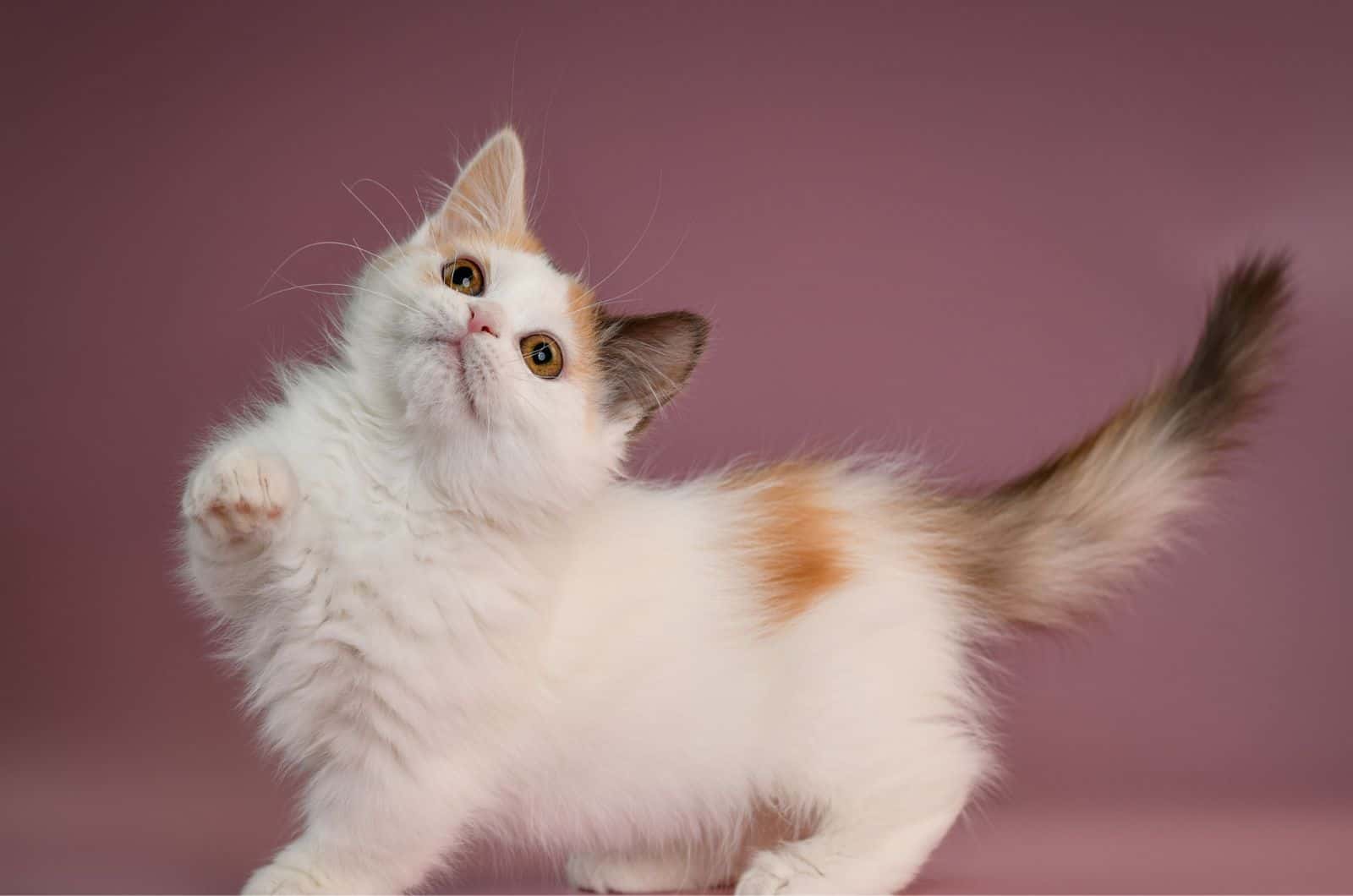
A common behavioral problem at this age is unwanted and excessive petting aggression. For example, grabbing your hand when you try to pet it or pouncing on your knuckles while you’re trying to do something.
This is partly a natural stage of growth. However, kittens that were separated from their mother or siblings too early and never learned proper play, can become too excited to control their intensity.
Whether their behavior is within normal limits or is exacerbated by any of these factors, redirect them to an appropriate toy and stop the game before they become too excited to control their behavior.
You can help them mature from there by using clear start and end game time cues. And remember, by the time they’re 8-month-old cats, they’ll be less needy!
Training
If a kitten scratches you or your furniture, it’s usually no big deal. However, if you don’t act, you’ll soon be dealing with adult cats with extremely sharp claws that scratch anything that gets in their way.
It is important to teach them where they should scratch since scratching is a natural behavior and a necessity. Your kitty will do it to mark its territory, sharpen its claws, and stretch its back.
When it comes to litter box training, cats naturally tend to defecate with sand, dirt, and fallen leaves. As such, they can bury what they’ve done almost anywhere.
It is usually enough to show your kitten where the litter box is and let them feel the sand under their feet. Sooner or later, your kitten will understand where to do its business.
Can A 5-Month-Old Kitten Be Left Alone?
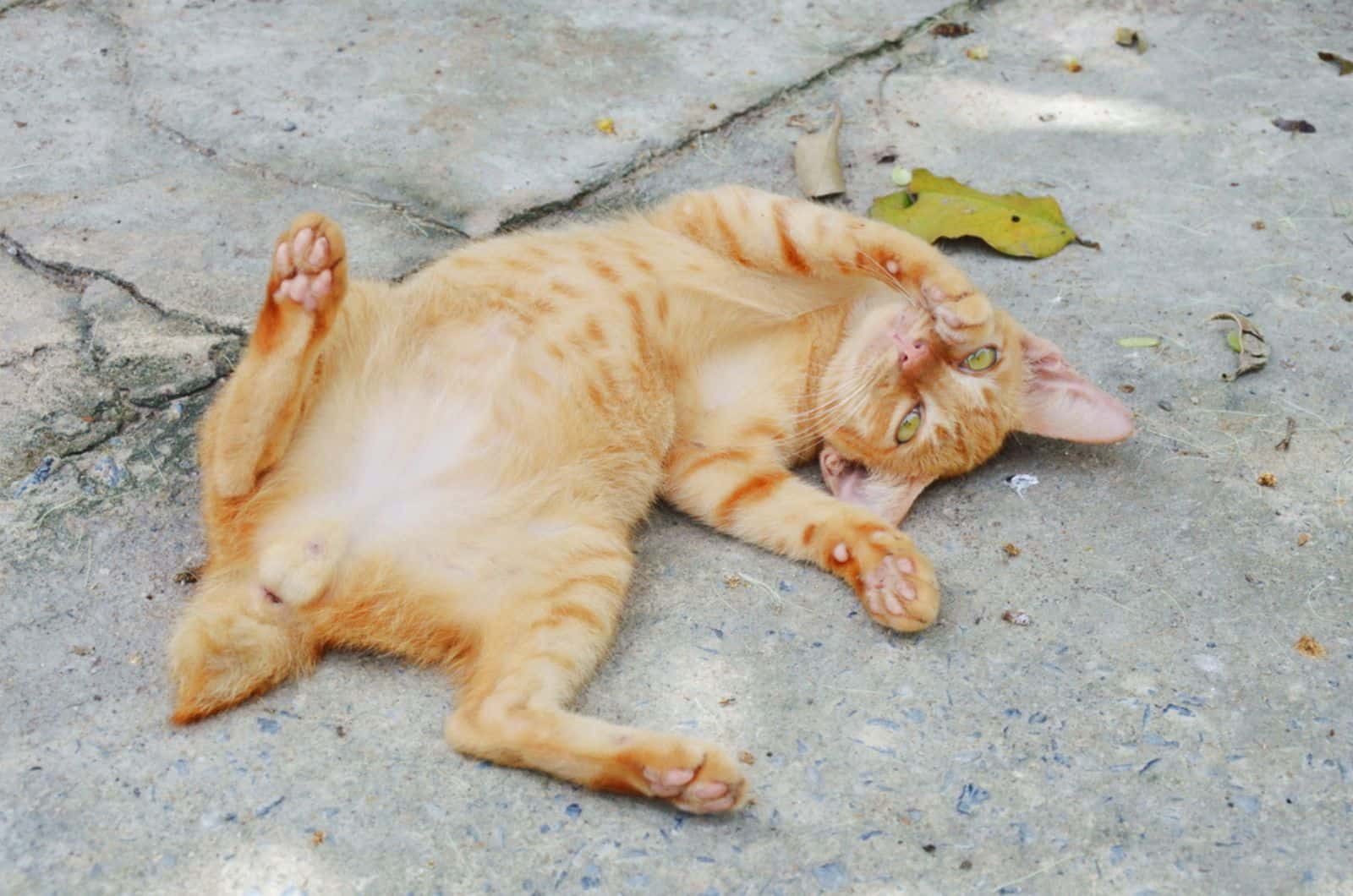
Before you go outside and leave your 5-month-old kitten alone at home, it’s a good idea to know your kitten’s behavior well before deciding whether or not to leave her alone at home.
If you leave your kitten alone at home, I recommend that you keep dangerous or fragile items out of her reach and close the door of any room with fragile or dangerous items.
It can be difficult to leave a kitten alone at home, but it’s important to remember that most kittens and cats don’t mind being left alone. As long as they have enough food and water available, you shouldn’t worry too much about it.
You might also be interested in: Where Should My Kitten Sleep On The First Night?
Can I Let My Kitten Outdoor?
Finally, let’s turn our attention to the exciting events on the horizon. If you plan to let your cat outside, it’s almost ready to go free. Once the vaccination schedule is completed, it is safe to introduce your kitty to some new areas just outside your home.
However, keeping cats indoors is recommended until they are about 6 months old. To bridge the gap, you can use a specially designed kitten harness and leash to keep your kitten close to you at first.
It’s also a good idea to practice saying your kitten’s name while giving them extra tasty treats so you can call them to come to you once you’re out of the house.
Grooming
You’ll notice how the soft kitten fur is gradually being replaced by thicker, smoother adult fur. This process takes about a month. If your adult cat’s coat is going to be long or wavy, you may need help keeping it neat and tangle-free.
Now is the time to start. Start with a gentle touch of the brush and try out a few brushing motions to make it a positive experience for your kitten.
Gradually increase to one brush stroke and then to several strokes until you can brush your cat’s entire coat down to the skin at once.
Helpful Tips
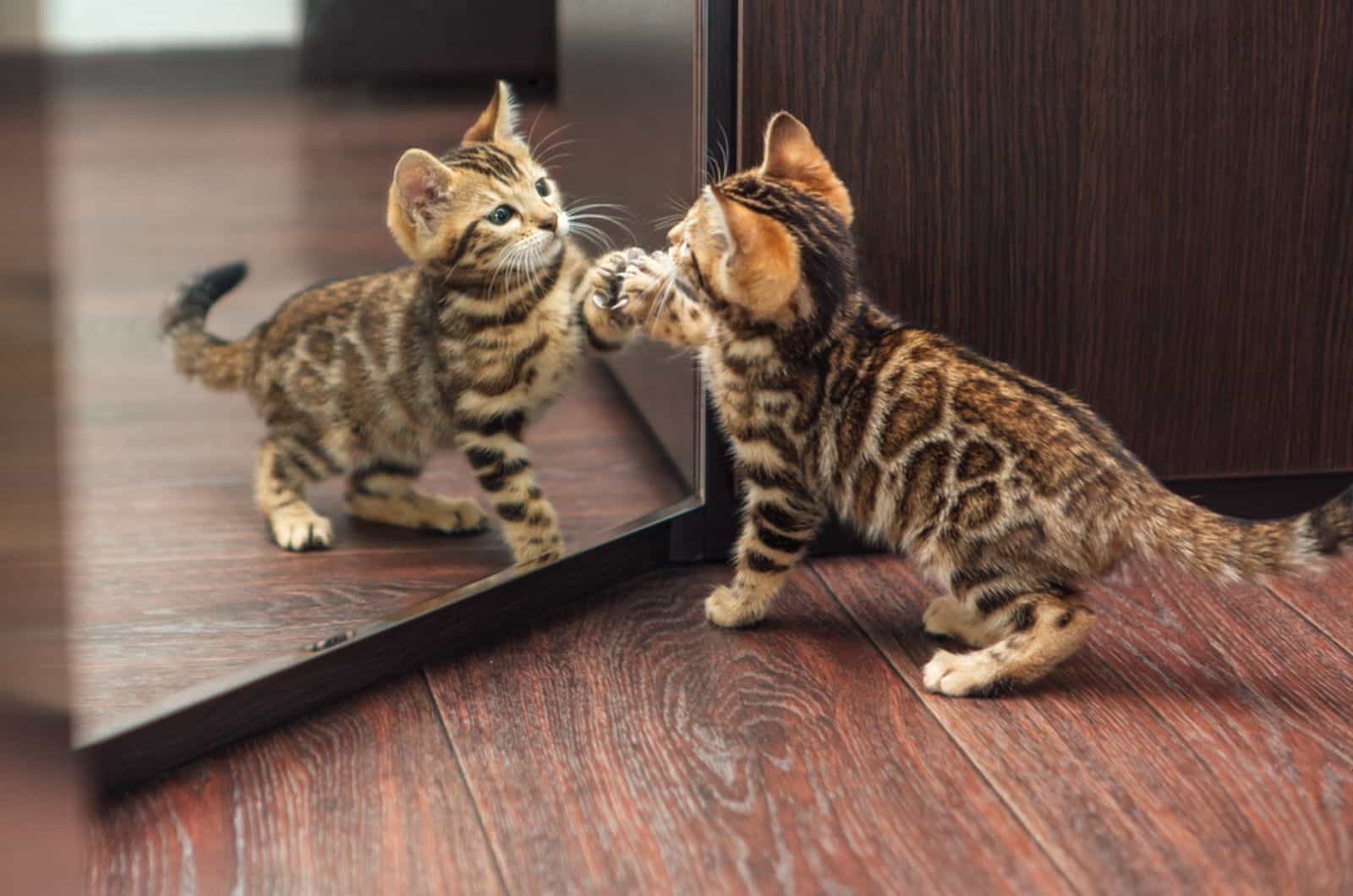
It’s a good idea to do some research before you adopt and welcome a new kitten into your home. Consult a veterinarian about the breed you’re adopting, whether there are any health issues that that cat breed is predisposed to, and so on.
It would also be a good idea to write a list of questions you want to ask if you’re buying your kitten from a breeder.
If you’re buying your kitten from a breeder, first and foremost, check that the breeder is registered, ethical, and reputable. Other than registration documents, check for reviews and recommendations.
Your vet will advise you on the specific things you should talk about with the breeder, but here are a few helpful tips to start you off. Consider asking the breeders these questions:
1. Are there any health issues that the cat’s parents have, or their bloodline is prone to?
2. Do I get my kitten’s health records and registration papers?
3. Did anything unusual happen from birth up to adoption day, with your kitten in particular?
4. Which vaccinations will your kitten have already received, and which do you need to provide?
5. Food-wise, are there already any favorite foods you should continue feeding your kitten?
6. How were playtime and cuddle time up until the day of adoption; is your kitten more playful or shy?
These are just some of the questions you should know the answers to before you bring your new furry friend home with you.
As for cat-proofing your home and buying the additional things your kitten needs, check out this article: New Kitten Checklist – Guide On What To Do & What To Buy. This way, you’ll know when’s the right time for a scratching post, cat toys, and various treats.
In the beginning, with a 5-month-old kitten, you’ll need fresh water, (age-appropriate) wet food, and lots of love to shower your feline friend with.
Final Words
To conclude, having a 5-month-old kitten ensures that there are never quiet or boring moments in your home. You’ll have ups and downs, but at the end of the day, you’ll have a furry friend to cuddle with.
Simply love your kitten, take good care of it, and do your best to train it. Cats are generally independent as pets, but they rely on us just as much as we do on them. They still need their daily cuddles and socialization. And let’s be straight, so do we.
There’s nothing better than snuggling up with your kitten to end the day with a smile!
Like this post? Share or pin it for later!
